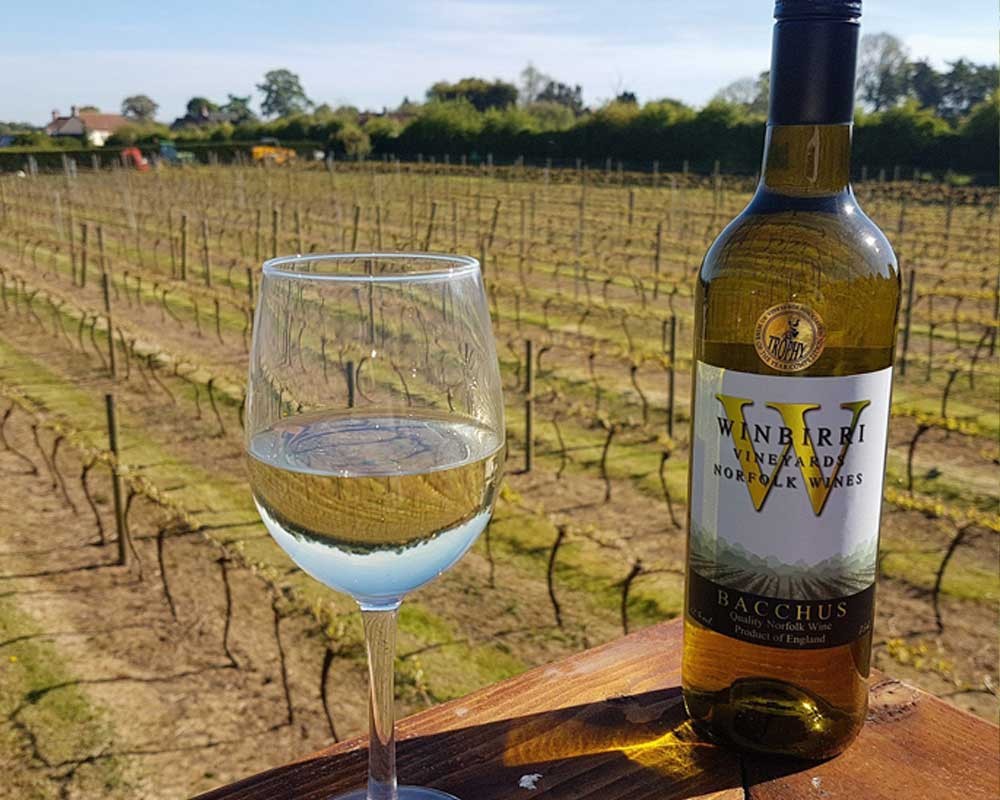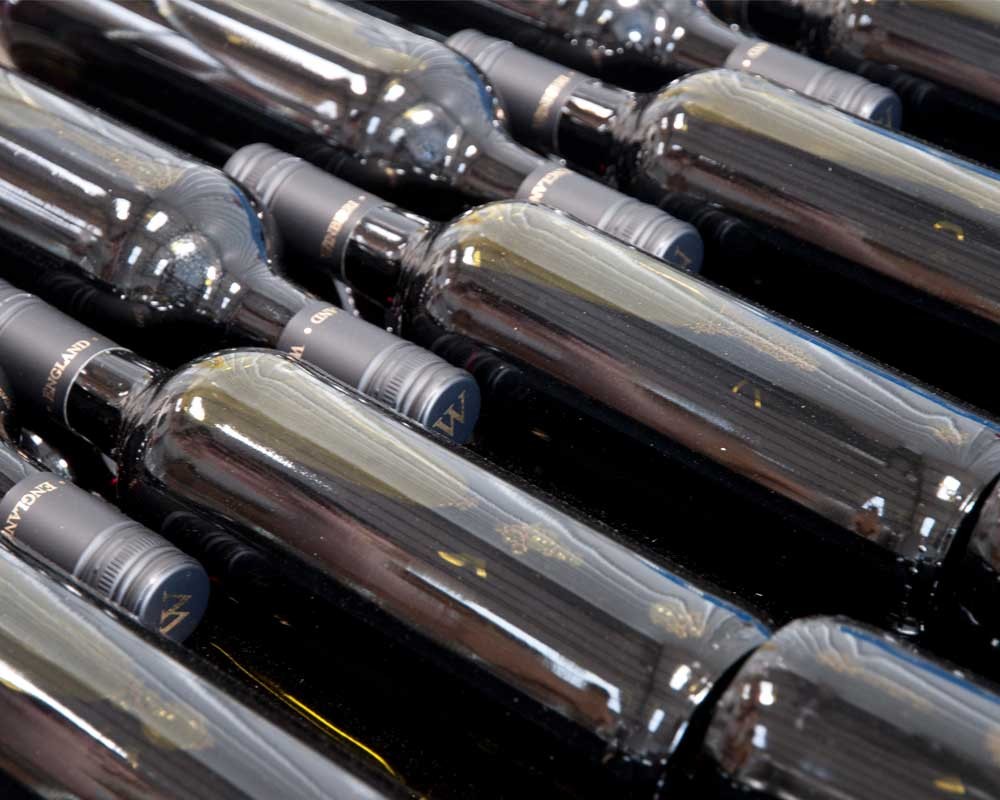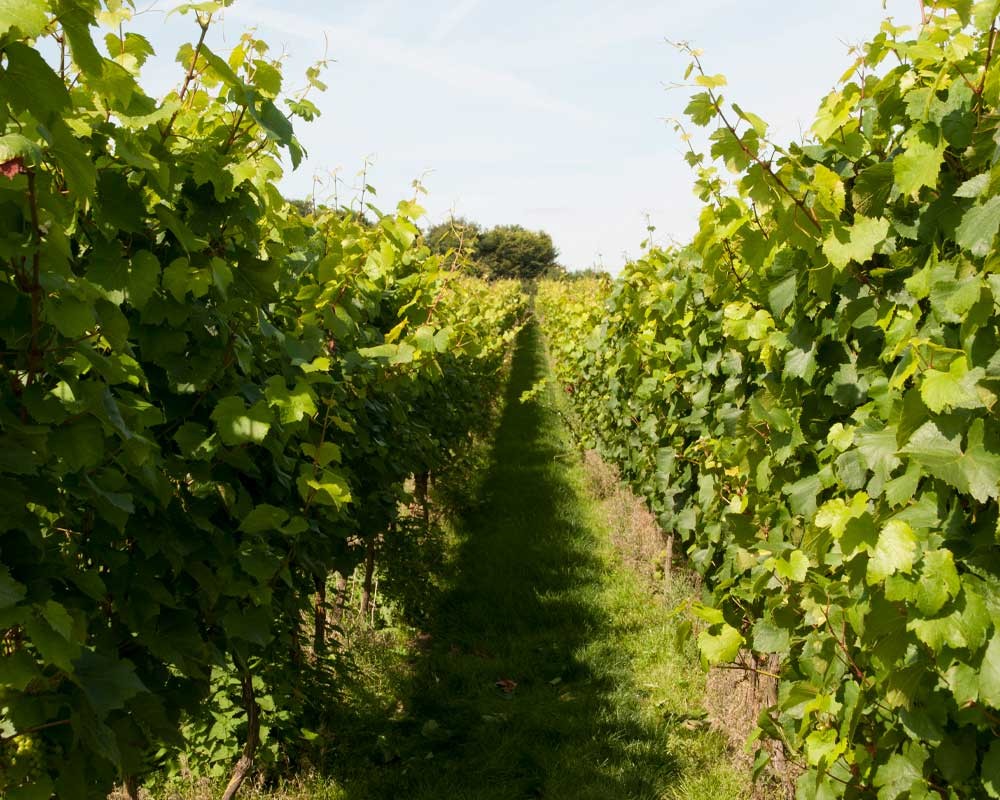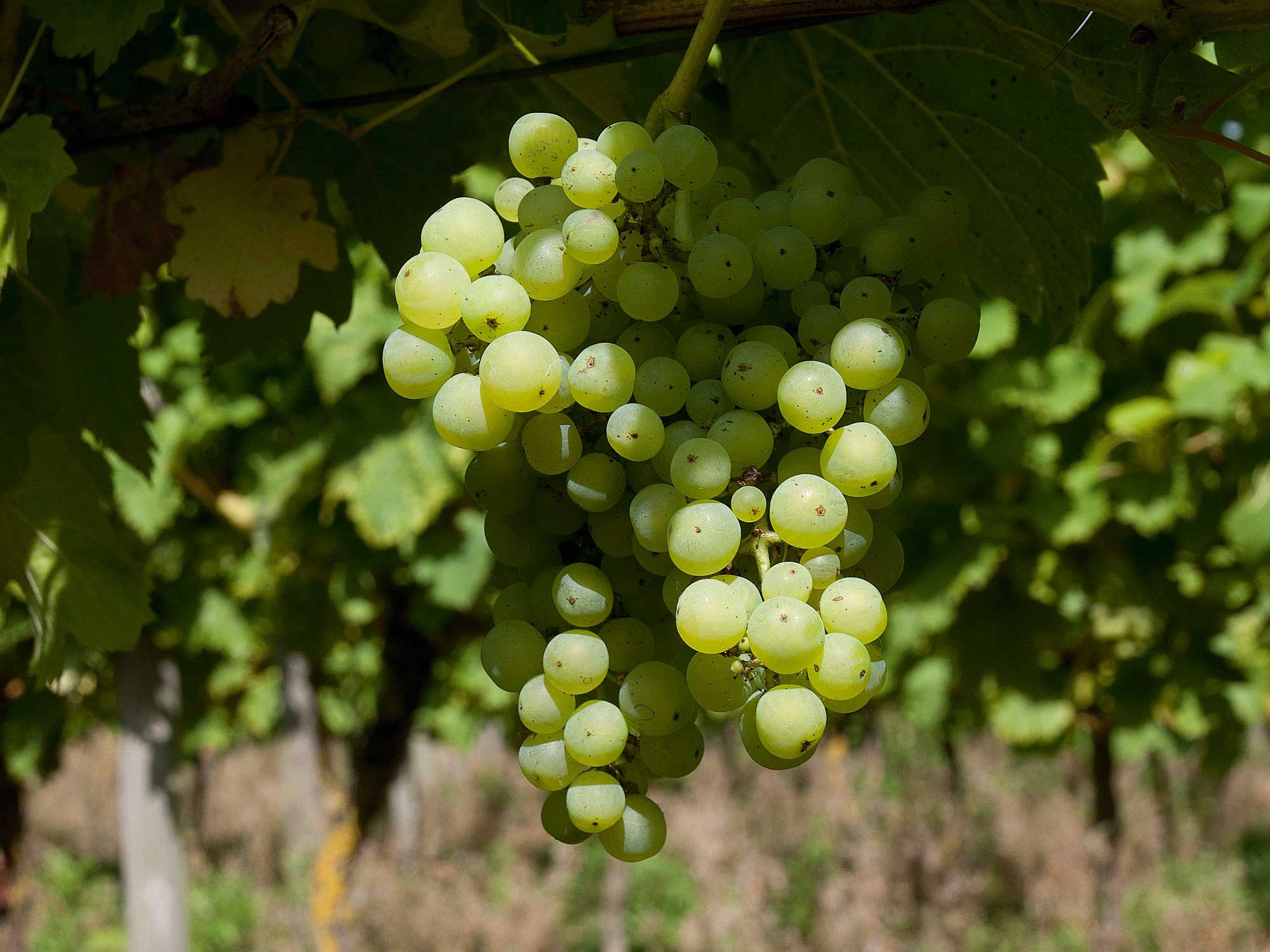
The best wine in the world – from a Norfolk vineyard
When Lee Dyer returned to Norfolk from Thailand ten years ago to find his father had suddenly decided to plant 200 vines, he was less than enthusiastic. A decade on, he couldn’t be more passionate about his vineyard and its wines
We’ve all heard of the Oscars and the Turner Prize, the Pulitzer and the Nobel Prizes, the very highest accolades in their respective fields; but few of us will have heard of the Decanter World Wine Awards. Now in its 16th year, it’s the world’s largest and most influential wine competition, trusted internationally for its rigorous judging process and the experienced views of the 200 wine experts from around the world who comprise the judging panel. Last year, they had the enviable task of choosing the world’s best white wine from a staggering 17,200 entries – and were so impressed with the winner they scored it 95 of 100.
The most amazing thing of all is that this wine didn’t hail from Bordeaux, Tuscany or the Napa Valley; it came, in fact, from the very edge of the Norfolk Broads from a vineyard that hardly existed a decade ago and is run by a team of six people.
But if you thought having their Bacchus 2015 win Decanter’s Platinum Best in Show at the World Wine Awards 2017 only meant Surlingham-based Winbirri Vineyard had to find some extra shelf space for a trophy, you’d need to think again.
For Lee Dyer, who admits to being lost for words when he returned home from Thailand to find his father had suddenly decided to plant 200 vines just a short walk from the banks of the River Yare, it turned his world around.
“Winning the award had an instant and incredible impact,” he says. “We were suddenly faced with a 1,000% uplift in demand. Shops sold out in ten minutes, and in six hours we received enough orders for 10 years’ supply. Within 48 hours we’d received over 10,000 e-mails and we got to the point where we simply couldn’t book any more tours or tasting sessions.”
If he’d been producing beer, Lee could have simply brewed some more to satisfy the overwhelming demand, but since grapes are an extremely limited commodity (vines generally take five years before they start producing and they’ll only do that once a year) Bacchus 2015 suddenly became one of the most sought-after wines on the planet. But all this success didn’t go to Lee’s head.
“We could have tripled the price of a bottle overnight and still sold out completely,” he says. “The reason we didn’t increase the price is that I didn’t want to take advantage of all the people and local stockists who’d supported us over the years.”
There’s something engagingly modest about Lee Dyer, and if you’re lucky enough to be able to join one of his vineyard tours you can’t help noticing he’s far more interested in this year’s crop than all the media attention.
“I didn’t win the award because I’m the best or most knowledgeable winemaker in the world,” he says. “I won it because I care passionately about what I do and my attention to detail is second to none.”
Indeed, Lee admits to being a little OCD when it comes to his vines. Each row is planted exactly 1.8m apart using laser-guided GPS technology to keep the ripening process consistent (it’s virtually the only mechanisation in the entire vineyard) and every single vine is visited 8-9 times a year – an amazing feat when you consider there are currently around 52,000 of them.
Pruning by hand takes three and a half months, and Lee will only harvest the grapes by hand. For the Bacchus crop alone that means enlisting a team of 100 volunteers to ensure the grapes are harvested within 48 hours.
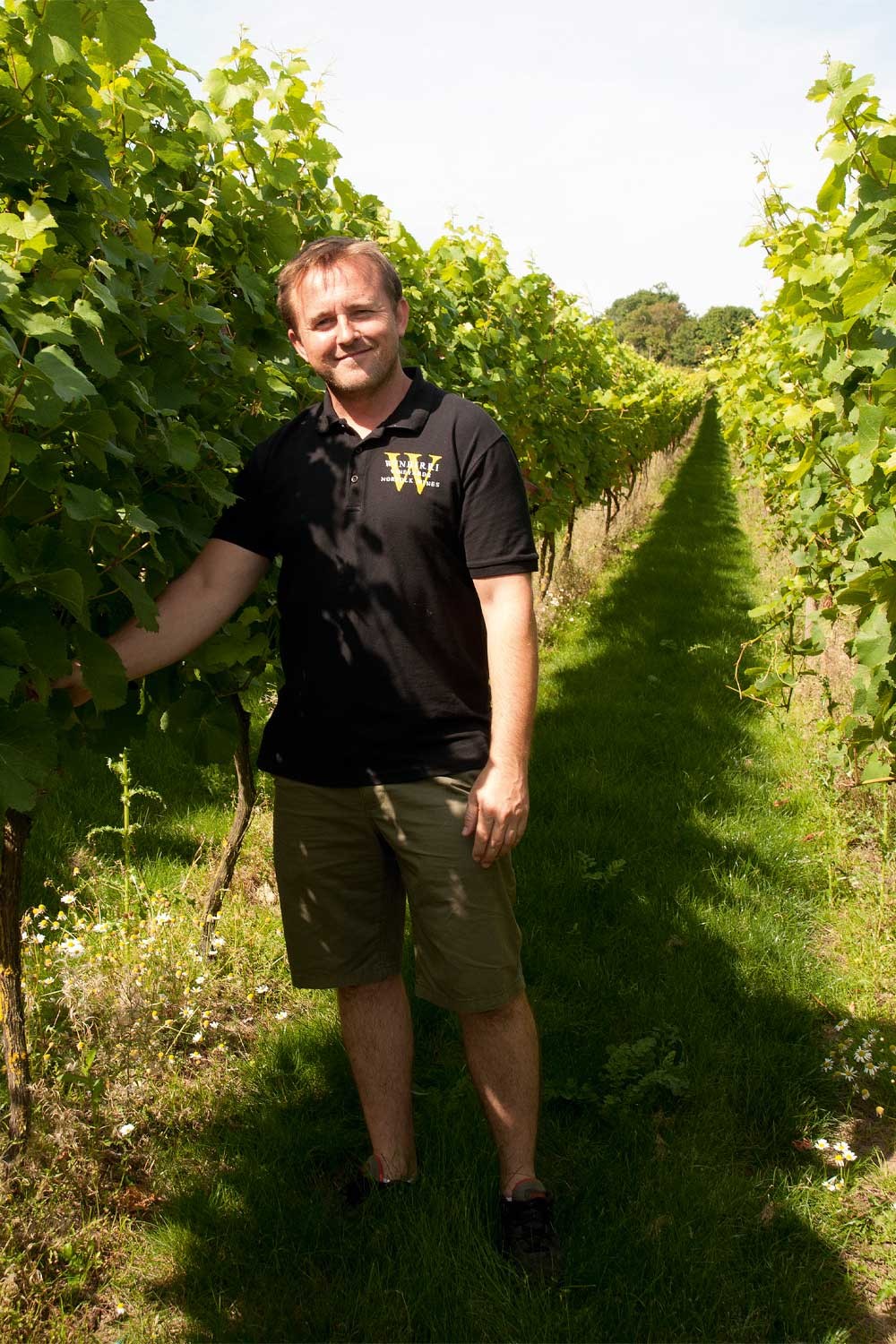
“Winning the award had an instant and incredible impact, we were suddenly faced with a 1,000% uplift in demand. Shops sold out in ten minutes, and in six hours we received enough orders for 10 years’ supply. Within 48 hours we’d received over 10,000 e-mails and we got to the point where we simply couldn’t book any more tours or tasting sessions.”
“That two-day window has nothing to do with economies or production schedules,” says Lee. “It’s all about quality and getting the perfect flavour profile. Throughout my life I’ve always thought that if something’s worth doing then it’s worth doing right.”
And while Lee’s certainly got it right with Bacchus 2015, it would be unforgivable to ignore the rest of the wines coming out of Winbirri Vineyard – especially as the former was the only wine he entered into the Decanter awards and he estimates around 50% of people actually prefer its sister wine, the crispy and finely-nuanced Solaris.
Bacchus may be getting all the attention, but it’s just one of 11 different varieties Lee grows, a selection of early- to late-season grapes (helping spread the demands of harvesting) that go to produce a quite exceptional range of wines.
Joining Bacchus and Solaris are (among others) the full-bodied red Reserve, the bold and spicy Signature, the lighter Pinot Noir, the dry rose Norfolk Pink and the seductive English Sparkling wines – all of them award winners in their own right. But for Lee Dyer it’s not about awards, accolades and full pages in national newspapers.
“At some points during the year I can work for 90 hours a week, but to be honest it’s more like I’m playing for 90 hours a week!” he says. “If you truly love doing something then it’s not really work at all. Winning awards and receiving all that attention is all very nice, but what I’m most interested in is making the best possible wine we can from the land and the vines that we have.”
And that’s something well worth raising a glass to.
For more information on Winbirri Vineyard and its current range of wines, please see the website at www.winbirri.com – which now includes an online shop, from which you can Lee’s wines direct.
This feature originally appeared in the Special Food Edition 2018 of KL magazine
